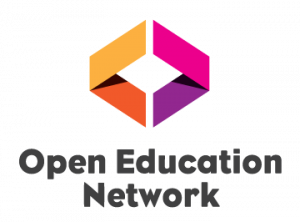Prepare to Write
12 Identify Support
Many hands make light work.
— English Proverb [1]
Self-publishing a book is not new. With advances in technology and the advent of the Internet, this endeavour has been made that much easier. Still, producing your own book — especially a well-written, high-quality textbook — is a big undertaking, and for best results should include a team of individuals, each armed with skills that would otherwise be filled by employees at a publishing firm. Remember: When you self-publish, you become the publisher.
BCcampus published over fifty open textbooks. Each author was assigned a project manager — similar to a managing editor — who organized book layout, scheduled copy editing and proofreading, attended to editorial development, ordered the textbook cover, and saw that the book was promoted and posted in the B.C. Open Textbook Collection. When we moved to the next phase of our work and encouraged authors to look to their post-secondary institutions for support, it was recognized that many of the publishing tasks — previously filled by BCcampus staff — fell to the author. This realization was one of the impetuses for writing this guide.
The Publisher’s Role
A publisher, particularly one that specializes in textbooks, is responsible for managing all aspects of the book’s production, save the writing; that’s the author’s job. Still, the publisher guides the development and refinement of the author’s ideas and words. Below are some of the roles typically filled by the publishing team.[2]
- Project management. The managing editor tracks assigned tasks for all staff, including the author.
- Book outline and layout. Publishers typically require a book outline from the author. However, a developmental editor will review it to ensure that all necessary elements are included and properly organized.
- Design (textbook cover, font, and layout) and art direction (illustrations, graphics, tables, and figures)
- Copy editing and proofreading
- Marketing, promotion, and distribution
Find help
As you list how and who will pay for your textbook (see Who Pays For This), include your support — or publishing — team. At your home institution, look for support from:
- Instructional designers (for design and layout)
- Graphic designers or illustrators (for images)
- Librarians (for copyright and licence information, and help evaluating resources and repositories)
- Technical support (assistance with authoring platforms, videos, and audio files)
- Student assistants (for gathering external resources and working as fixers). (See Fix as You Go.)
Outside of your post-secondary institution, look to:
- Colleagues at other institutions
- Your professional organization
- Open-textbook and OER communities
As the OER movement advances, several groups have come forward to support the efforts of open textbook authors and self-publishers. Below are some to consider.
- Rebus Community is made up of faculty, staff, and students from post-secondary institutions and other organizations from around the globe who support the work of open textbook authors and projects. Talents include project management, copy editing, proofreading, writing, and other skills.
- GitHub is a development platform that includes open-source projects such as open textbooks. For more information, see Appendix 2: Developers and Technicians in the BCcampus Open Education Pressbooks Guide.
- CCCOER offers a Community of Practice for Open Education. Their community email provides an easy way to ask colleagues questions about open education, open practice, and where to find specific open textbooks and OER.
___________________________________________________________________________

___________________________________________________________________________

